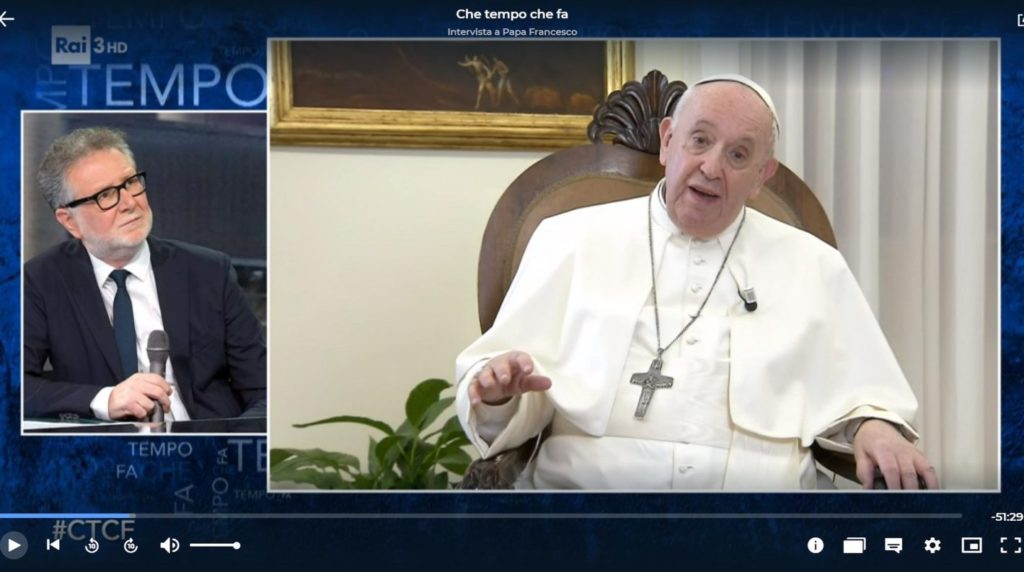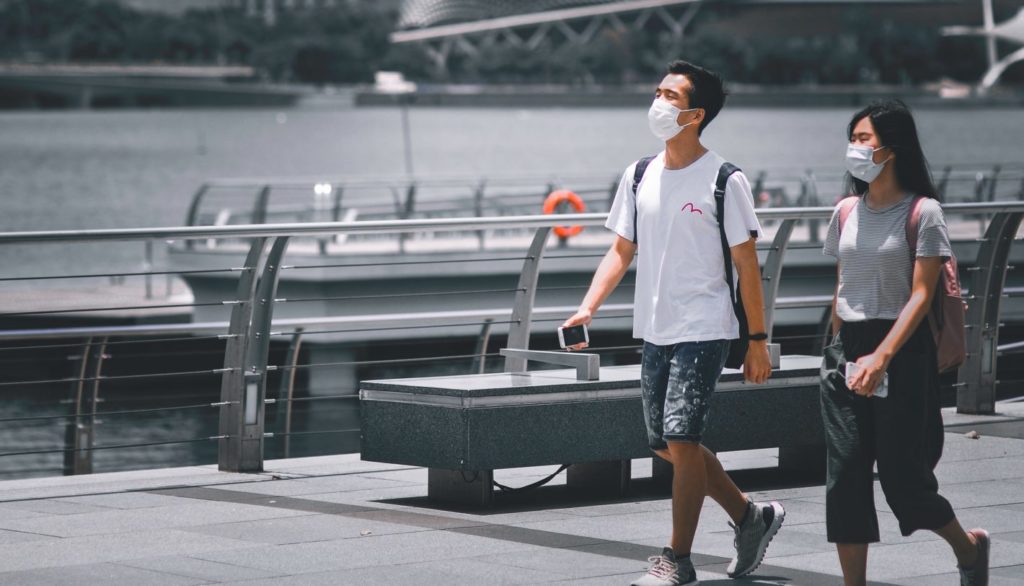Last Sunday, during prime time, RAI channel 3 in Italy broadcast a long interview with Pope Francis during the program "Pope Francis and the Pope". Che tempo che fa conducted by journalist Fabio Fazio. The interview lasted about an hour, and covered many topics close to the heart of the Church and society in general, from the suffering of so many people to the indifference affecting the world of immigration, from the winds of war that have returned to Europe to environmental emergencies, to the relationship between parents and children, the meaning of evil, prayer and the future of the Church.
In response to the journalist's question about social aggressiveness, Pope Francis again referred to a "problem" that he had already addressed on other occasions, that of "youth suicides," which are on the rise and have intensified in the last two years also because of the Covid-19 pandemic. And it is true that it is a social scourge that is always little talked about. In fact, it was the Pontiff himself who denounced it already in 2015, when at a Workshop on Modern Slavery held at the Vatican he pointed out for the first time how among the consequences of the lack of work is the suicide of young people, whose statistics "are not published in their entirety."

What has happened instead to the pandemic in terms of mental health and emotionality in adolescents and young people? A study by Wenceslao Vial, a Chilean priest and physician who teaches at the Pontifical University of the Holy Cross in Rome, and editor of the interdisciplinary portal Maturity psychological & spirituallooked at a young man's suicide attempt to monitor how Covid has truly changed the lives and affected the emotional world of many people.
Increased negative emotionality
From the analysis of various scientific publications that have addressed the issue of the health emergency in the last two years, it appears that "negative emotionality: sadness, fear, worry, irritability" has certainly increased, along with anxiety and depression, eating disorders, pornography consumption and "somatic symptoms" in younger children.
A survey of school principals in different parts of the world - also cited by Vial in his study - concluded that "the first period of seclusion or blocking is better coped with than the second, perhaps because of the novelty". The return to school was seen as a relief, but there were still "more relational problems, such as difficulty integrating into the group".
Relapses
Clearly, much also depended on how the pandemic was managed in different countries. The principal of a school in Estonia, for example, wrote that he had not noticed an increase in cases of depression or anxiety, partly because the press was "generally less emotional than in other cultures." However, there was "a relapse of depressive or anxious symptoms in those" who were being treated before the pandemic and were beginning to feel better.
The response of a school in Chile, a country undergoing a major social crisis, was different: "the increase in abnormal emotional reactions among students aged 13 to 18 was very evident. We had 5 girls in 2021 hospitalized for depression and eating disorders".
The family was considered an important factor. The isolation of the first period seems to have had the positive effect on the young people of giving them the opportunity to share, eat and play with their siblings and parents, as well as decreasing alcohol and drug consumption, which inevitably increased after the end of the confinement measures. On the other hand, an increase in divorces was also observed, which generated more sadness, anxiety, insecurity and hostile reactions among the young people.
Three previous crises
However, the conclusion reached by the Chilean physician and priest is that the impact of the pandemic on the affectivity of young people was significantly greater than the classic factors that cause emotional suffering in adolescents (drug addiction, weak identity, pornography) because it was added to three previous crises that were latent. The crisis of "emotionality", that is, confusion and ignorance of one's own affectivity, "which is equivalent to living with a stranger in one's own home"; the crisis of "coherence", both individual and social, in relation to the major problems but also to the pandemic itself; the crisis of "meaning", which further obscures suffering and illness.
The output
How to get out of it? Vial proposes as many strategies to counteract the three crises: teaching people to know their emotions; encouraging decision making and change, for example by exploring the value of time and inviting people to disconnect from external stimuli to pay more attention to what is important; searching for the meaning of life to be truly happy, rediscovering value, searching for purpose, making room for transcendent experiences and learning to know one's own personal history.
These are four pillars," suggests Wenceslao Vial, "that help to build a more confident personality": "many young people who do not have an easy life and have suffered great wounds can acquire the strength to get up again, if they are given security".
Clearly, this requires joint action by families, educators, religious ministers, politicians and all agencies dealing with young people, through a truly comprehensive approach that includes sports activities, live or online socializing spaces, time management, and social and family relationships. Only in this way will it be possible to restore to young people, to all young people, the security that comes from their value as a person. To be better people.









